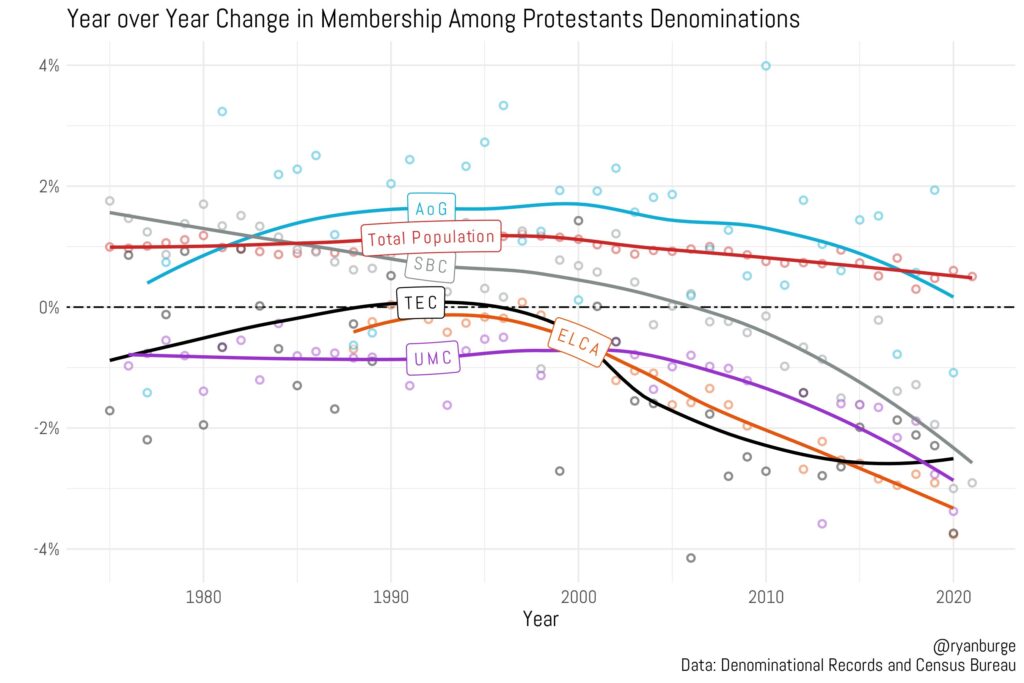Decline is the one word summary we all know summarizes the state of American Christianity, especially when focusing on membership numbers. It is true that the decline came earlier for Mainline Protestants, but also true they’ve been joined by Evangelicals.
According to sociologist Ryan Burge, only one major Protestant denomination, “has seen consistently positive year over year growth over the last four decades.” That denomination is the Assemblies of God.

available at twitter.com/ryanburge/status/1606305510067785734/photo/1
AoG on SWF
The Assemblies of God have appeared here at So What Faith only a handful of times:
- 40 New Online Worship Experiences (2020) – an Assemblies of God congregation was mentioned in an informal poll I conducted about online worship opportunities early in the COVID-19 pandemic
- Visiting 50+ Churches in Dallas – Fort Worth (2019) – noted that 1 of the 52 congregations I’d visited in the Dallas – Fort Worth area of Texas since 2015 was affiliated with the Assemblies of God. Also see Where’s Greg Worshipping? (2016) for another mention of that congregation.
- Christian Belief in a Personal God (2014) – reported on a then recent survey that characterized denominations by the percent of their adherents that believed in a personal God noting that the Assemblies of God ranked in the top category – a category that included no Mainline denominations
- Sermon: Misguided Expectations (2013) and Halloween at the Hell House (2011) – both posts reference my experience with fear-based Evangelism as expressed by one Dallas area congregation’s annual Halloween event
- An Overview of American Church Membership (2011) – noted that the Assemblies of God were one of only three large American religious groups that reported growth over the preceding year
So What?
Last year Burge wrote a data rich article for Christianity Today considering the ongoing growth of the Assemblies of God with the subtitle: How has the 3.2-million-member denomination avoided decline? After comparing and contrasting the growth of the Assemblies of God between 2005 and 2019 to the decline of larger Protestant denominations, Burge suggests there is no single reason the denomination is an outlier for growth. Instead, he proposes that three factors have recently contributed to growth during this period:
- active membership (as expressed by frequent worship attendance by members)
- politically homogenous makeup
- small enough to not receive the national media attention typically devoted to larger Protestant denominations – attention that often focuses on controversy
Many experts from a variety of disciplines have attempted to explain the unique success of continued membership growth in the Assemblies of God in the United States, but no scholarly consensus has emerged.
Growth at the level of a single local church is quite different from growth denomination wide.
Reflect on what you know about the Assemblies of God (and feel free to supplement this with a bit of research):
- Why do you believe they are the only Protestant denomination to have grown year over year for the last forty years?
- Consider the top reason you presented in your answer above. How common is that characteristic common in your denomination?
- Share one gift you feel the Assemblies of God has given to the wider Protestant world during your lifetime.